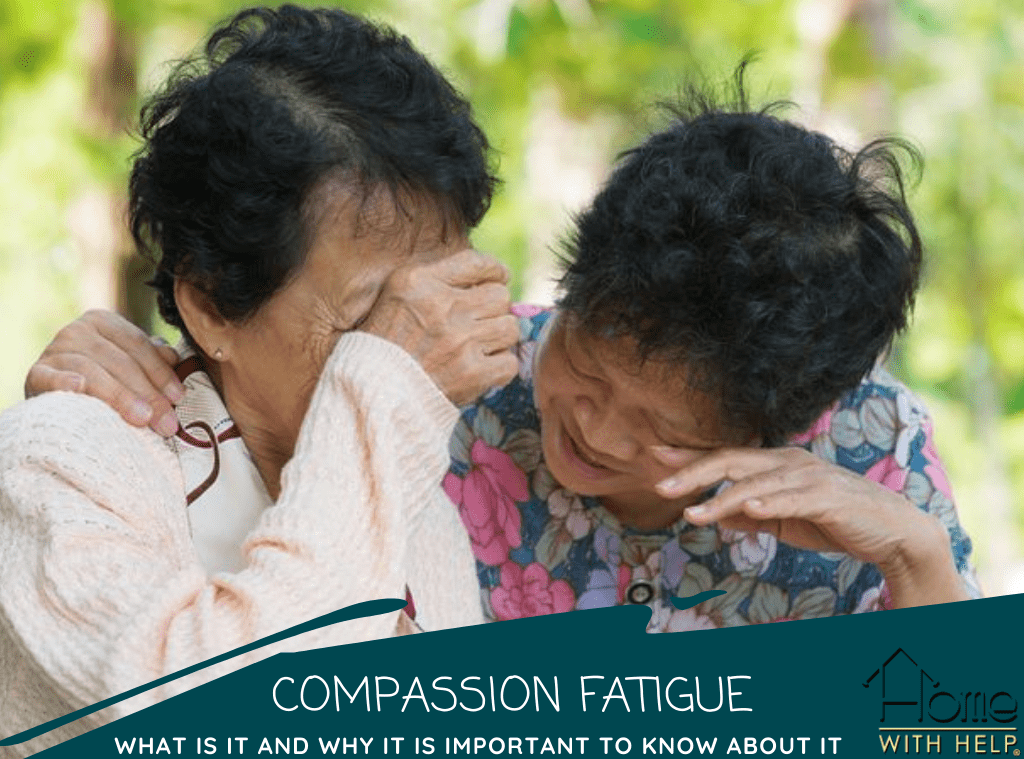
What is Compassion Fatigue?
Compassion fatigue is a symptom, not a disease. It is broadly defined and can include a vast range of symptoms that can affect our emotional, physical, and spiritual wellness. It results from the chronic stress that comes from caring for people we care about and love. Emotional stress is a major contributing factor to the six leading causes of death in the United States.
We are taught from a young age to care for others before caring for ourselves. This is a mechanism that is built into the human psyche. If it is not, then how do mothers care for their children when they are sick? We are all “caregivers” in some fashion.
With today’s pressures of career mindsets and financial necessity, more and more we find ourselves working outside our home. Then we have to come home to be a caregiver on duty. Whether that duty comes from obligations to family traditions, financial reasons, or caring for a spouse, being a caregiver comes with a growing symptom of “compassion fatigue.”
Who Has Compassion Fatigue?
Approximately 66% of family caregivers are women. More than 37% of people have children or grandchildren under 18 years old living with them. AND 1.4 million children ages 8 to 18 provide care for an adult relative. 72% of those children are caring for a parent or grandparent, and 64% live in the same household as their care recipient. So, it’s no wonder Compassion Fatigue is so widely spread.
This problem is not limited to only family caregivers. This symptom is felt in the field of healthcare from nurses and professional caregivers to firefighters and social workers. Anyone that serves in the field of helping those who are sick with chronic diseases or serves where there is constant trauma will feel the symptoms of compassion fatigue.
Symptoms and Treatment
Some symptoms of Compassion Fatigue are:
- Bottled up emotions
- Substance and alcohol abuse to mask feelings
- Sadness
- Mental and physical exhaustion
- Chronic physical ailments
What are some treatments?
- Self-care
- Take personal time
- Educate yourself regarding symptoms
- Support groups and talking with friends who can understand
- Setting boundaries
My Story
As far back as I can remember, I have been emotionally caring for someone. My family was plagued with Degenerative Cataracts, which caused severe visual impairment. That was the beginning of my natural state of caregiving … a role that came to me with ease because it was normal. And for over 30 years, I have found myself in some sort of “caregiver” role.
But, as with anything in life, even too much of a good thing can be too much. Without realizing how it crept up on me, one day I woke up with Compassion Fatigue.
You Are Not Alone
The most important thing is to realize that you are not alone. Whether it is a choice to be a caregiver, your career, or a situation that has brought you to the caregiver role it is important to remember “you” in all of it. Self-care and boundaries, along with reaching for help through resources can help manage the symptoms of Compassion Fatigue.
If you feel that you are currently experiencing any of these symptoms, we highly encourage you to do some more research on how the resources are available to you.
Schanell M McCoy, CDP CNA
Author
Resources and Articles
Compassion Fatigue Awareness Project